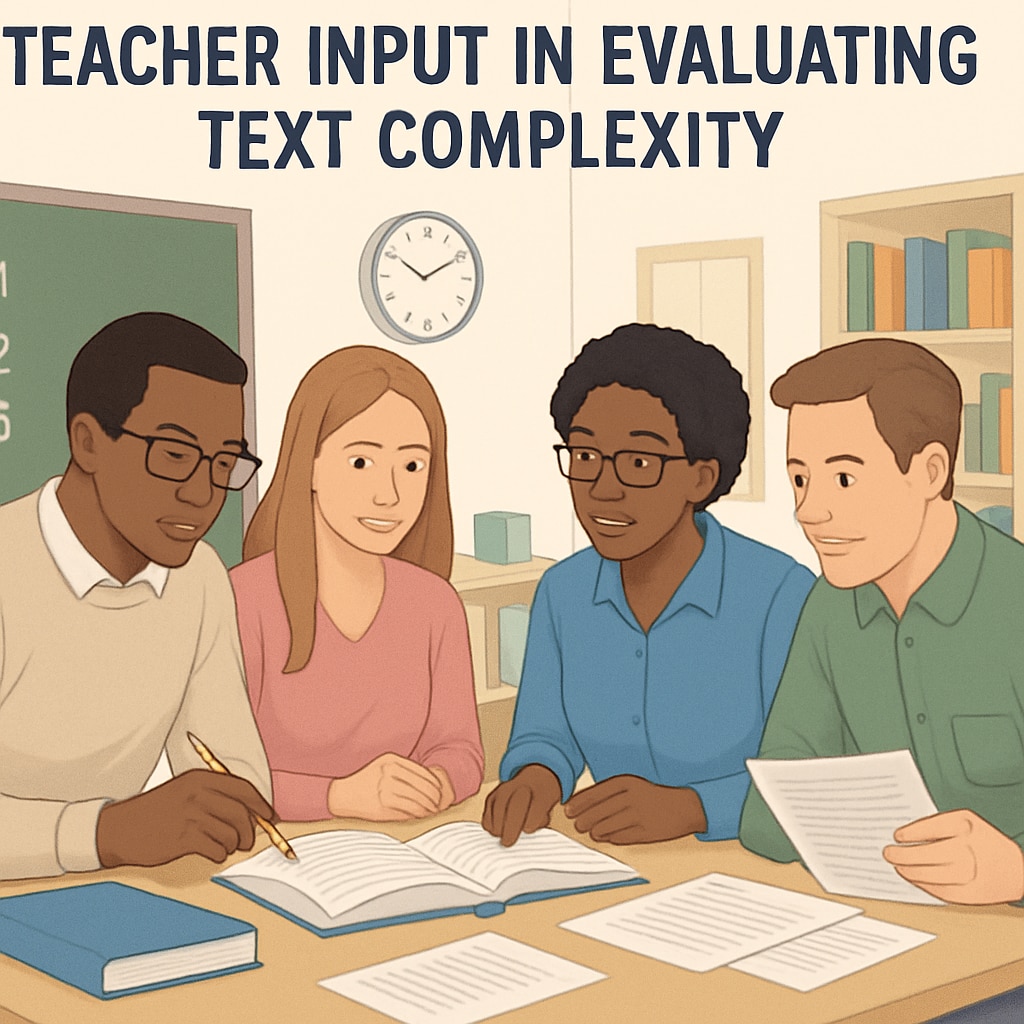Understanding and evaluating reading text complexity is a critical step in improving reading comprehension and ensuring effective curriculum design. A groundbreaking research project is now calling upon elementary and middle school teachers to contribute their professional insights to assess the complexity of reading materials. With only 30 minutes required for participation, teachers have the opportunity to play a pivotal role in advancing literacy research and shaping the future of textbook selection. By leveraging teacher expertise, this initiative aims to unlock new ways of understanding text complexity and its impact on student learning outcomes.

The Role of Teachers in Evaluating Text Complexity
Teachers are uniquely positioned to evaluate the complexity of reading texts, as their daily interactions with students provide them with firsthand knowledge of how different age groups process information. This research project acknowledges the invaluable expertise of educators and seeks to formalize their judgments into a scientific framework. Teachers can assess factors such as vocabulary difficulty, sentence structure, thematic content, and cultural context, which are often overlooked by automated text evaluation tools. As a result, their insights help bridge the gap between theoretical models and real-world classroom experiences.
For example, automated methods like Lexile measures focus primarily on quantitative factors such as sentence length and word frequency. However, these metrics may fail to account for nuanced elements like the emotional depth of a story or the relevance of a text to students’ lived experiences. Teachers provide a qualitative perspective that is essential for creating a holistic understanding of text complexity.

Advancing Literacy Research Through Teacher Collaboration
This research initiative highlights the importance of collaboration in literacy research. By involving teachers directly, the project not only enhances the accuracy of text evaluations but also ensures that the findings are grounded in practical classroom realities. The data collected from teachers’ assessments will be used to refine existing models for predicting text complexity and identifying appropriate reading materials for different grade levels.
As a result, educators can expect future curriculum designs to be more closely aligned with their students’ needs. For example, identifying texts that strike the right balance between challenge and accessibility can improve reading motivation and comprehension skills. Additionally, the research findings may inform the development of adaptive learning technologies that tailor reading assignments based on individual student profiles.
Why Participation Matters
Teachers’ involvement in this research project is not only a contribution to academic advancement but also a step toward empowering educators in shaping educational standards. Participation requires only 30 minutes, during which teachers will review and evaluate a selection of texts. Their input will directly impact the project’s success and its ability to produce actionable insights for curriculum developers and policymakers.
Furthermore, this initiative serves as a reminder of the collaborative nature of education. Teachers, researchers, and developers must work together to address challenges in literacy education. By contributing to this project, educators reaffirm their role as key stakeholders in the academic community and actively participate in shaping the future of reading instruction.
Key takeaways:
- Teachers offer unique insights into text complexity through firsthand classroom experience.
- The project bridges the gap between theoretical models and practical applications in education.
- Participation is simple, requiring only 30 minutes of review and evaluation.
- Findings will influence curriculum design, textbook selection, and adaptive learning tools.
- Collaboration between educators and researchers is crucial for advancing literacy education.
In conclusion, this innovative research project underscores the importance of teacher expertise in evaluating reading text complexity. By participating, educators contribute to a larger effort to improve reading comprehension methods and ensure that students are equipped with the tools they need to succeed academically.
For more information on text complexity evaluation, visit Reading comprehension on Wikipedia and Literacy on Britannica.


